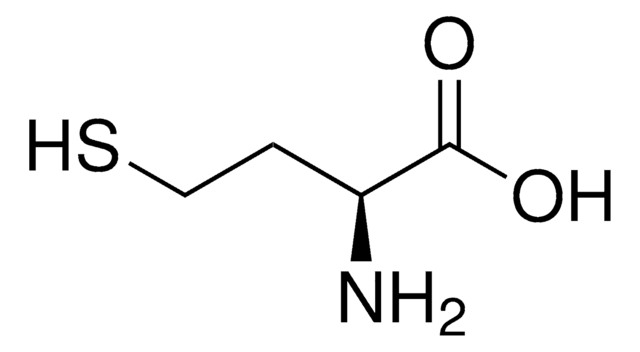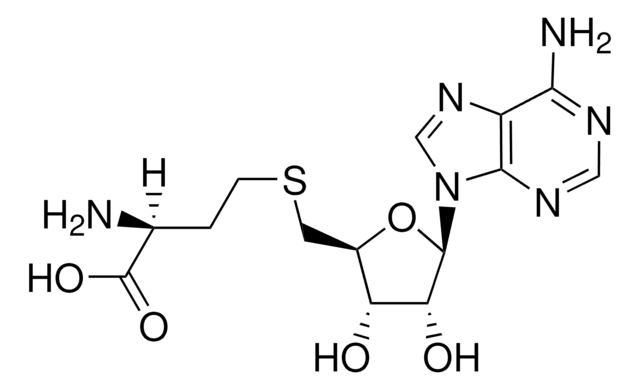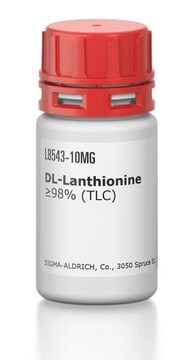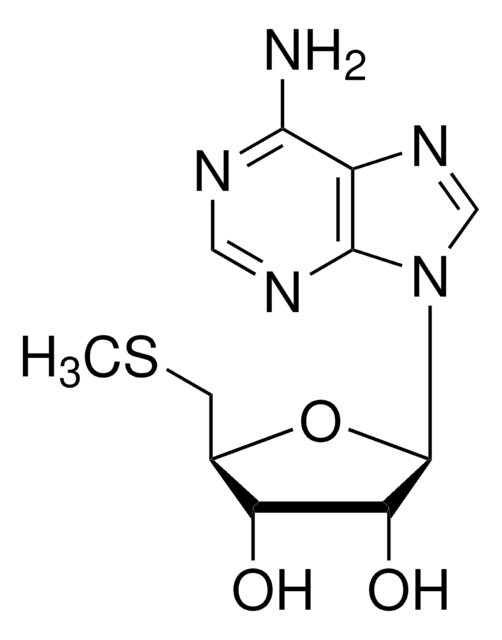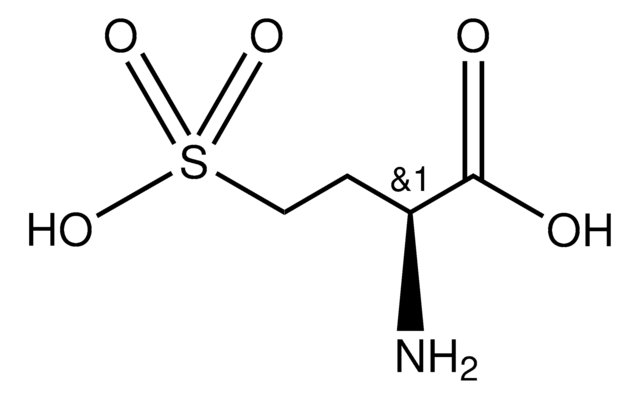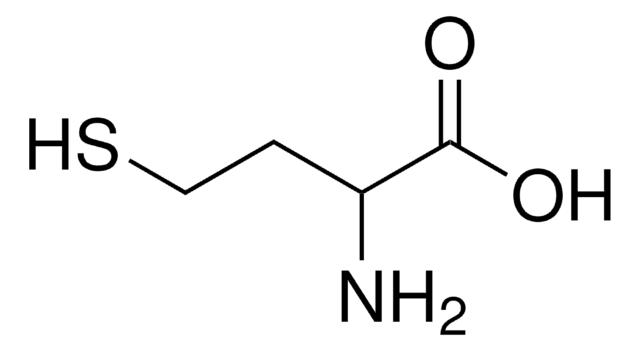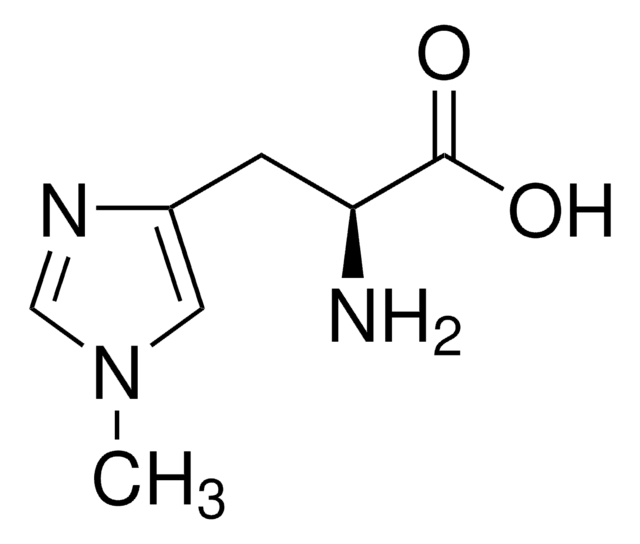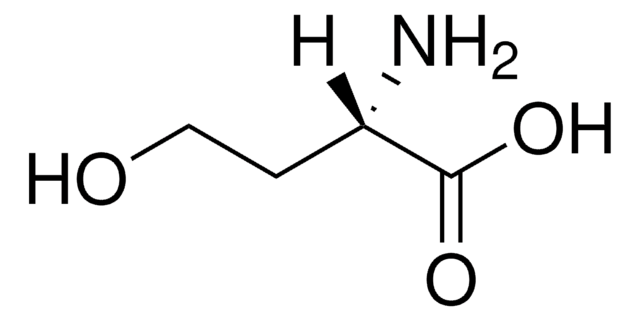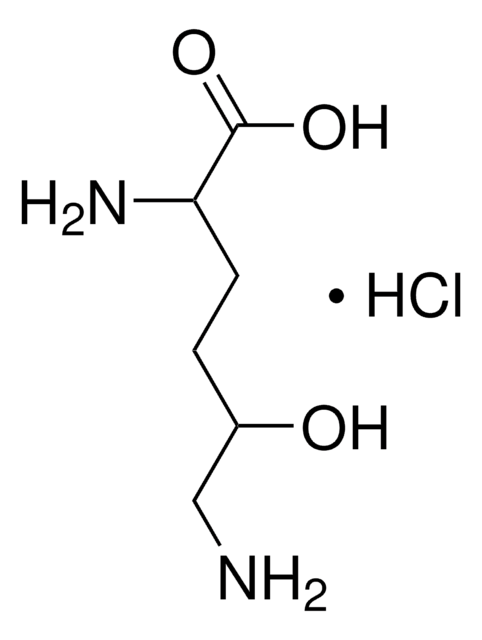C7505
L-Cystathionine
≥98% (TLC), suitable for UHPLC
Synonym(s):
(R)-S-(2-Amino-2-carboxyethyl)-L-homocysteine
About This Item
Recommended Products
product name
L-Cystathionine, ≥98% (TLC)
Quality Level
Assay
≥98% (TLC)
form
powder
technique(s)
UHPLC: suitable
color
white
mp
>300 °C
storage temp.
−20°C
SMILES string
N[C@@H](CCSC[C@H](N)C(O)=O)C(O)=O
InChI
1S/C7H14N2O4S/c8-4(6(10)11)1-2-14-3-5(9)7(12)13/h4-5H,1-3,8-9H2,(H,10,11)(H,12,13)/t4-,5-/m0/s1
InChI key
ILRYLPWNYFXEMH-WHFBIAKZSA-N
Looking for similar products? Visit Product Comparison Guide
Application
Biochem/physiol Actions
Storage Class Code
11 - Combustible Solids
WGK
WGK 3
Flash Point(F)
Not applicable
Flash Point(C)
Not applicable
Personal Protective Equipment
Regulatory Listings
Regulatory Listings are mainly provided for chemical products. Only limited information can be provided here for non-chemical products. No entry means none of the components are listed. It is the user’s obligation to ensure the safe and legal use of the product.
JAN Code
C7505-50MG:
C7505-BULK:
C7505-VAR:
C7505-10MG:
C7505-250MG:
Certificates of Analysis (COA)
Search for Certificates of Analysis (COA) by entering the products Lot/Batch Number. Lot and Batch Numbers can be found on a product’s label following the words ‘Lot’ or ‘Batch’.
Already Own This Product?
Find documentation for the products that you have recently purchased in the Document Library.
Customers Also Viewed
Articles
Inborn errors of metabolism are caused by changes in specific enzymatic reactions and hundreds of different such alterations, which affect about 1 of every 5000 newborns, have been characterized.
Our team of scientists has experience in all areas of research including Life Science, Material Science, Chemical Synthesis, Chromatography, Analytical and many others.
Contact Technical Service
